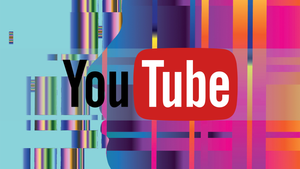YouTube is in talks with all three major record companies about the next phase of its work developing music-making generative AI, building on the Dream Track experiment that involved ten artists and a small group of YouTube creators. Lump sum payments are being offered to entice big name artists to participate, according to sources who have spoken to the FT.
The plan is to involve dozens of artists next time round, with YouTube saying “we’re not looking to expand Dream Track but are in conversations with labels about other experiments”.
One label executive told the FT that they are “wrestling” with how to capitalise on this opportunity, with many artists reportedly resistant to work with YouTube on an AI that can generate vocals in their style and voice. “Technically the companies have the copyrights”, the source added, “but we have to think through how to play it”.
Universal Music previously commended YouTube for seeking to collaborate with the music industry on the development of AI tools, in contrast to those technology companies which claim they can train generative AI models with existing music without getting permission from record labels and music publishers. In August last year, the major endorsed the launch of a YouTube Music AI Incubator and the video platform’s ‘three fundamental AI music principles’.
Then in November it was confirmed that both Universal Music and Warner Music were involved in the Dream Track pilot, developing an AI tool that would allow YouTube creators to generate vocals for their videos in the style of artists like Charlie Puth, John Legend, Sia, T-Pain, Demi Lovato, Troye Sivan, Charli XCX, Alec Benjamin and Papoose.
Even when digital platforms voluntarily opt to work with the music industry on developing generative AI tools, there are challenges to navigate. First, the labels themselves have to believe that the commercial opportunity is sufficient to justify the risk of helping develop AI that can then compete with their catalogues and artists. Then the labels need to figure out what they can do unilaterally and what requires the active involvement of other stakeholders.
For starters, if an AI company begins ingesting recordings provided by the labels, they are also exploiting the separate song copyrights contained in those recordings. Even where the artist who recorded the track also wrote the song, there’s a high chance that their publishing is controlled by a different company which will also need to provide a licence.
While you are working with dozens of artists, the publishing could be licensed on a song by song basis, like with sync licensing. Though once you are working with hundreds and especially thousands of artists, that approach won’t work and the AI company will need to start negotiating blanket licences with the music publishers and collecting societies.
On the recordings side, there is the debate over the extent to which artist involvement is required when a label owns the copyright in any one sound recording.
Some artist groups have called on the majors to commit to always get artist consent before allowing their recordings to be used in AI training, but that commitment is yet to be made. This suggests that the labels believe they can license their catalogues to AI companies without artist consent providing they share any income with the artists whose recordings are used.
That said, even if that is the position being taken by the major labels, with projects like Dream Track they need to be more cautious. By imitating an artist’s voice, rights beyond copyright are likely being exploited when developing this kind of AI, including personality and possibly personal data rights. That probably means artist consent will be required. Plus, YouTube is presumably hoping to work with superstar artists, and neither YouTube nor the majors would want a big backlash from those stars as they roll out the new AI tool to creators.
The majors will therefore presumably be looking to directly involve artists in the next phase of YouTube’s AI experimentation. They will need to convince those artists of the commercial value of the project, and ensure they get a decent upfront payment. All three majors are in talks with YouTube about the next phase, which means Sony Music artists could be involved too. Quite how it will work - and how many artists get on board - remains to be seen.

